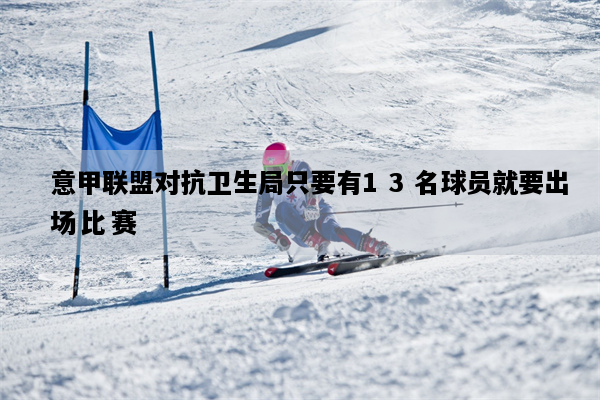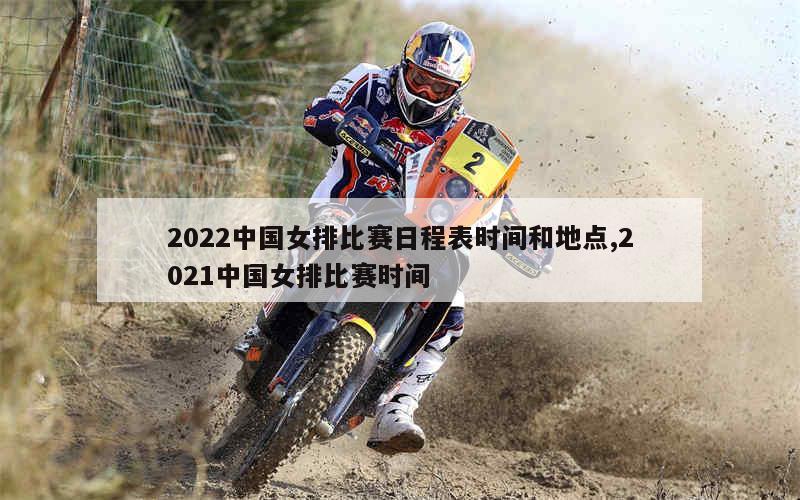意甲联盟对抗卫生局只要有13名球员就要出场比赛

意甲联盟对抗卫生局只要有13名球员就要出场比赛
在昨晚意大利卫生部门的特别理事会后,对第20个比赛日中的4场比赛进行了停赛,对此意甲足球联盟将有关于最低参赛标准的规定出台。
联盟的新规则对于球队管理新冠疫情的方式的核心思想就是必须要进行比赛,条件简单粗暴,有阳性或者隔离球员的俱乐部至少有13名球员可用,其中至少包括一名守门员,满足这个条件就必须按照规定时间出场比赛,那些不参加比赛的球队将会直接0:3判负。
此外,意甲联盟将就卫生部门没有考虑到隔离新规定的措施(即对第三次接种的人5天自我监测)提起上诉。在12月30日的法令新规之后,几天后应该会有一个更新的版本出来,这可能会再次得到科学委员会的批准,从而给足球比赛带来确定性。
国际米兰已经在博洛尼亚了,应该会按时出场来等待主队的到来,或许最终可以不战而胜,结果虽好,但对于球迷来说就少了一场精彩的比赛。#国米##国际米兰#
中考英语考点词汇精讲910
中考英语考点词汇精讲(9)
1. everyday; every day
(1)everyday作形容词,意为“每天的,日常的,平日的”。仅用在名词之前做定语,不能单独使用。例如:
everyday life 日常生活
everyday English 日常英语
everyday activities 日常活动
everyday clothes 平日里穿的服装
(2)every day 是副词短语,意为“每天”,相当于each day, 通常用作句子的时间状语从句。
We should eat vegetables and fruits every day.我们应该每天都吃蔬菜和水果。
My parents ask me to go to bed before 11:00 every day.我的父母要求我每天11:00之前睡觉。
2. fair
(1)fair作形容词,意为“公平的,合理的”。There must be fair play whatever the competition is.不管是什么样的竞赛都必须公平合理。
(2)fair作形容词,意为“自然的,理所当然的”。It’s fair enough to ask your close friends to help.向你的好朋友求助,这是很自然的/理所当然的。
(3)fair作形容词,还意为“相当大(多、远)的”。
They’ve made a fair amount of money.
他们赚了相当大的一笔钱。
(4)fair作形容词,也意为“(肤色)浅的,(头发)金色的”。
Her daughter has big eyes and fair hair.
她的女儿长着大大的眼睛,金色的头发。
【拓展】
fair作名词,意为“(定期)集市、庙会;商品展览会、博览会”。
He brought his piglets to the fair.
他把小猪带到集市去卖。
A book fair is to be held next month.
下个月将举行书展。
3. avoid
(1)从意思上看,可表示“避开”或“躲避”(keep oneself from)某人或某物;也可表示“防止”(prevent)某事的发生。例如 :
Try to avoid accidents.
尽量防止发生事故。
I avoided him as much as possible.
我尽量避开他。
You should avoid such mistakes.
你应当避免这样的错误。
正:He avoided answering my questions.
误:He avoided to answer my questions.
要想不受影响是不可能的。
正:It was impossible to avoid being affected.
误:It was impossible to avoid to be affected
4. be famous for
(1)be famous for表示人以某种知识技能,作品或特征而出名;表示某地以某种特产或特征出名;或表示某事以其内容、特征、价值等而被人所知。例如:He is famous for his skill in playing football.
他因球艺而出名。
The area is famous for its green tea.
这个地区以产绿茶而著称。
【拓展】
be famous as 表示“以……而出名”的意思,或确切地说是“作为……而出名”的意思,主要是表示人以某种身份或职业而出名,或表示某地方作为什么产地或地方而出名,或表示某事物以某种形式而出名。Mark Twin was famous as a children-story writer.马克·吐温作为儿童故事作家而著称。
This book is famous as a reference book.
这本书作为参考书而出名。
5. produce; product; production
(1)produce 作动词,表示“生产,制造,出产”的意思;例如:
Tea is produced in many different areas in China.
中国很多地方都出产茶叶。
produce作名词,主要指农产品,是一个不可数的集合名词。例如:
the agricultural produce农产品
the native produce土特产品
We need some fresh produce.
我们需要一些新鲜的农产品。
(2)product 主要指工业产品,也可指农产品,是可数名词。例如:
farm product农产品
Petrol is the most important product of many Middle-East countries.
石油是许多中东国家最重要的产品。
【注意】有时用于引申义。例如:
He saw man as the product of society.
他把人看作是社会的产物。
(3)production 通常不表示具体的产品,它主要指生产这一动作或过程,制作,摄制(电影、戏剧等),是不可数名词;例如:
The company is famous for the production of small cars. 这家公司以生产小型汽车闻名。
【注意】production 除表示“生产”外,还可指艺术作品,此时为可数名词。例如:
The theme of his late productions was life and death. 他晚期作品的主题是生与死。
production 还可以表示产量,是不可数名词
the production of wheat小麦生产产量
The production has increased.
产量已增加。
6. be good for
be good for意为“对……有好处,对……有益处”,介词for后接名词或代词。其反义词为be bad for,意为“对……有害处”。例如:
Junk food is not good for our health.
垃圾食品对我们的健康没有好处。
Smoking is bad for you. 吸烟对你有害。
【拓展】
(1) be good to“对……好”,其反义短语为be bad to“对……不好”。介词to之后一般接表示人的名词或代词。例如:
She is very good to us. 她对我们很好。
The boss is bad to his workers.
那个老板对他的工人不好。
(2) be good at“在……方面擅长”,介词at后面常接名词、代词或动词-ing形式,同义短语为do well in。例如:
She is good at English and Chinese.
= She does well in English and Chinese.
她擅长英语和汉语。
(3)be good with“和……相处得好;擅于和……相处”。例如:
Are you good with children?
你和孩子们相处得好吗
7. turn … into ….
(1) turn … into…表示“把……变成…… ; 使……变成……”。例如:
Can you turn this piece of paper into a flower? 你能够把这张纸变成一朵花吗
Please tell me how to turn the water into ice.
请告诉我怎么把水变成冰。
【拓展】
turn into表示“转变;变成;成为”。例如:
We think he’ll turn into a top-class player. 我们认为他会成为一流的选手。
I think I have got to stop or I might turn into a machine.我想我得停下来了,否则我就会变成一台机器。
8. special
(1)special作形容词,意为“特殊的,特别的,专门的(反义词:ordinary)”,强调事物特有的性质、性格或专门的目的、用途。
You must have special permission to enter this room.你必须得到特许才能进这个房间。
(2)especial 作形容词,意为“特别的,主要的,突出的(反义词:common)”,强调的是重要性,有“尤其、特别”之意。
He solved the problem of especial importance.他解决了非常重要的问题。
9. both … and …
(1)both...and...意为“……和……都……”; “不仅……而且……”,连接两个并列的词或短语,不能用来连接句子。作主语时,谓语动词用复数形式,不受“就近原则”的限制。例如:Both Li Ming and Wei Hua are good at English.
【拓展】
both...and...相对应的连词结构式neither…nor…表示“既不……也不……”。作主语时,谓语动词受“就近原则”的限制。例如:
Neither you nor I am a student.
你和我都不是学生。
10. invent
(1)invent 作动词,意为“发明;创造”。例如:
Edison invented the light bulb.
爱迪生发明了电灯。
(2)invent还可以表示“虚构”。例如:
The whole story was invented.
整个故事是虚构的。
(3) invent的名词形式有两个,一个是inventor(发明者;发明家),另一个是invention(发明物)。例如:
Edison is a great inventor in history.
爱迪生是历史上伟大的发明家。
Human history is also a history of great inventions.
人类的历史也是一个伟大发明的历史。
【拓展】
invent和discover辨析
(1)invent 意为“发明,发明之物”指“从无到有”。例:
Alexander Graham Bell invented the telephone in 1876.
亚历山大·格雷厄姆·贝尔在1876年发明了电话。
(2)discover 意为“发现”,指“本来就已经存在,但不为人知”的事物。例如:
Columbus discovered America in 1492.
哥伦布在1492年发现了美洲。
11. for example
for example意为“例如”,强调“举例”说明,而且一般只举同类人或物中的一个作为插入语,且用逗号隔开。for example可置于句首、句中或句末。例如:
There are many kinds of pollution, for example, noise is a kind of pollution.
有许多种污染方式,例如噪音就是一种污染。
Many students like playing computer games,for example,Mike.
许多学生喜欢玩电脑游戏,比如迈克。
【拓展】
such as意为“例如”,用来“罗列”同类人或物中的几个例子,可置于被列举的事物与前面的名词之间,但such as后边不能用逗号。例如:
Many of the English programs are welcome, such as Follow Me, Follow Me to Science.
其中有许多英语节目很受欢迎,例如《跟我学》《跟我学科学》。
English is spoken in many countries, such asAustralia,Canadaand so on.
许多国家说英语,如澳大利亚和加拿大等。
12. popular
(1) popular作形容词,意为“流行的,受人欢迎的”。常用短语为be popular with,意为“受……的欢迎。例如:
The most popular sport is football. 最流行的运动是足球。
He is popular with our classmates. 他在我们班里有人缘。
(2)popular作形容词,意为“民众的;大众的”。
Popular education is one of our major objectives. 民众教育是我们的主要目标之一。
He speaks in popular language. 他用通俗的语言讲话。
【拓展】popularity作名词,意为“普及,流行;大众化”。Golf has gained popularity among the wealthy in my country.高尔夫球已在我国富有的人中流行起来。The popularity of private cars is changing the people’s life style.
私家车的普及正在改变着人们的生活方式。
13. remain
(1)remain用作不及物动词,意为“剩下、留下、呆在”,相当于stay。例如:
When the others had gone, Joan remained (=stayed) to clean the room.
别人走了,琼留下来清扫房间。
Only a few leaves remained (=were still) on the tree.树上只剩下几片叶子了。
The Smiths remained there all through the year. 史密斯一家人在那里呆了整整一年。
The soldiers were ordered to remain where they were. 士兵们接到命令呆在原地。
(2)remain作连系动词,意为“一直保持,仍然处于某种状态中”。例如:
Peter became a manager but John remained a worker. 彼得当上了经理,但约翰仍然是一个工人。
Whatever great progress you have made, you should remain modest. 无论你取得了多么大的进步,你都应一直保持谦虚。
The shop remains open until 11 at night.
这个商店一直营业到晚上十一点。
Whether it will be good to us remains to be seen. 这是否对我们有好处,还有待观察。
14. smell
smell作名词,表示“气味”。smell作连系动词,意为“闻、嗅”,后面常用形容词作表语。
What’s the pleasant smell? 香味是什么
The dumplings smell nice. 这些水饺闻起来很好。
【拓展】
(1)look,sound,smell,taste,feel这五个动词都与人的感觉有关,可称之为“感官”动词。这五个动词均可作连系动词,后面接形容词作表语,说明主语所处的状态。其意思分别为“看/听/闻/尝/摸起来……”。除look之外,其它几个动词的主语往往是物,而不是人。
The old man looks very happy.
那个老人看起来很幸福。
These flowers smell very sweet.
这些花闻起来很香。
The tomatoes feel very soft.
这些西红柿摸起来很软。
(2)look,sound,smell,taste,feel这些动词后面也可接介词like短语,like后面常用名词。
Her idea sounds like fun.
她的主意听起来很有趣。
15.take place
take place常用于历史事件或会议的发生,以及化学、物理变化,有事先预料或计划的意思,即“计划发生”。例如:
The party took place yesterday evening. 昨晚举办了晚会。
Great changes have taken place in our hometown during the past ten years. 我们家乡在过去的十年里发生了巨大的变化。
【拓展】
happen指具体客观事物的发生,常有偶然性,未能预见性,即“偶然发生”。happen和take place均为不及物动词,无被动语态。
(1) 表示“某地/某时发生了什么事”,常用“sth. + happened + 时间/地点”这一结构,此时主语应该是物。例如:
The story happened in 2008.
这个故事发生在2008年。
An accident happened in that street.
那条街上发生了一起事故。
(2) 表示“某人出了某事(常指不好的事)”要用“sth. + happened + to sb.”这一结构。例如:
A car accident happened to her this morning. 今天上午她出了车祸。
What happened to you? 你怎么啦
(3) 表示“某人碰巧做某事”要用“sb. + happened + to do sth.”这一结构。
I happened to meet a friend of mine in the street yesterday. 昨天我碰巧在街上遇到了我的一个朋友。
16.boil
boil作动词,意为“使……煮沸,使……烧开”。
I stood in the kitchen, waiting for the water to boil. 我站在厨房,等着水烧开。
【拓展】
(1) boiling作形容词,表示 “炎热的; 沸腾的”。
When everybody else is boiling hot, I’m freezing! 当其他所有人都酷热难耐时,我却冻得够呛!
Placing an egg into a huge pan full of boiling water isn’t easy either.
把蛋丢进一口装满开水大锅也不是容易的事。
(2)boiled作形容词,表示“煮过的;煮熟的”。
I’d like to drink a glass of cool boiled water. 我想喝一杯凉开水。
17. achieve
( 1)achieve作及物动词,意为“完成,实现”。
You will never achieve anything if you spend your time that way.
你若总是这样消磨时间,就永远不会有所成就。
Everybody should be given the chance to achieve their aims.
要让每个人都有机会实现自己的目标。
No one can achieve anything without effort.
谁也不可能不努力而有所作为。
(2)achieve作及物动词,意为“达到,赢得”。
The actor achieved fame when he was only nineteen. 那位演员十九岁时就成名了。
She achieved no success. 她没有获得成功。
【拓展】
achievement作名词,意为“成就,成绩”。例如:
The invention of the computer is a great achievement. 发明电脑是一大成就。
18. pleasure
pleasure作名词,指“愉快的事,乐趣”。
It’s a pleasure to meet you. 见到你很快乐。
It’s my pleasure. 不客气(接受道谢时解答)。
【拓展】
(1) pleased作形容词,指外物作用于感官,使人感到“高兴、满意”,常见的结构为:be pleased+不定式或从句, be pleased with, be pleased at (about)。例如:
I’m very pleased with the performance.
我很满意这次表演。
We’re pleased about (at) your success.
对于你的成功我们很满意。
I’m quite pleased that she has got such a good chance.
我很高兴她得到这样一个好的机会。
(2) pleasant作形容词,意为“令人愉快的,讨人喜欢的”。例如:
They spent a very pleasant afternoon in the hills. 他们在山上度过一个令人舒心的下午。
Spring weather is pleasant.
春天的天气让人心旷神怡。
中考英语考点词汇精讲(10)
1. grow up
grow up意为“长大;成熟;成长”。例如:
I grew up in Beijing. 我是在北京长大的。
I want to be a football player when I grow up. 我长大后相当一名足球运动员。
【拓展】
(1)grow into意为“长大成为”。例如:
Mary grew into a beautiful girl.
玛丽长成了一个漂亮的姑娘。
(2)grow还有“种植;增长”的意思。例如:
The farm grows all kinds of crops, such as rice, wheat and cotton. 这个农场种植各种各样的庄稼。例如:稻谷、小麦和棉花。
The population of the world is growing faster and faster. 世界人口增加得越来越快。
2. make sure
make sure=be sure,意思是“确信”,它的后面可以跟that(可省略)引导的宾语从句、动词不定式或of短语。例如:
I am sure of his guilt.我确定他有罪。
I am sure to help you tomorrow.
我明天一定会帮你。
I am sure(that)he will achieve his goal. 我确定他会实现目标的。
3. education
education是名词,意为“教育;教育学”。例如:
Everyone wants to have a good education. 每人都想有一个良好的教育。
His lack of education is a disadvantage when he looks for a job.
他缺少教育,这在找工作时是一个不利条件。
【拓展】
educational是形容词,意为“教育的,有教育意义的”,常作定语。例如:
The staff should make sure the kids have an enjoyable and educational day.
老师们应该确保孩子们度过愉快而有教育意义的一天。
Several educational methods are being used at present.很多种教育的方式目前正在被使用。
4. send
send是及物动词,意为“寄,发送”,过去式和过去分词都是sent,其后能接双宾语,即send sb. sth.=send sth. to sb.。例如:
He sent me a postcard.
= He sent a postcard to me.
他寄给我一张明信片。
【拓展】
动词接双宾语时,有两种结构:
(1) 动词 + 间接宾语(sb.) + 直接宾语(sth.)
(2) 动词 + 直接宾语(sth.) + 介词(for/to) + 间接宾语(sb.)
能接双宾语的动词可分为两类:
(1)常用介词to的动词有:send; give; show; bring; show; teach; tell等。例如:
give sb. sth. = give sth. to sb.
show sb. sth. = show sth. to sb.
(2)常用介词for的动词有:buy; sing; make; cook; get等。例如:
buy sb. sth. = buy sth. for sb.
make sb. sth. = make sth. for sb.
5. resolution
resolution为可数名词,意为“决心;决定”,常与make形成固定词组搭配:make a resolution意为“做决定;下决心”。例如:
People write down their resolutions and plans for the coming year.
人们写下他们的决心以及对来年的计划。
He made a resolution to study hard.
他下决心要努力学习。
6. hobby
hobby为可数名词,意为“业余爱好;兴趣”,其复数形式为hobbies。例如:
I collect stamps as a hobby.
我的爱好是收集邮票。
My hobbies are letter writing, football, music, photography, and tennis.
我的业余爱好是写信、踢足球、听音乐、玩摄影和打网球。
My hobby is to read books. 我的爱好是读书。
7. agree with
agree with意为“同意……;赞成……”,后面接表示人或表示“意见;观点”的词。例如:She agreed with me. 她同意我的意见。I quite agree with what you said. 我完全同意你说的话。
【拓展】
(1)agree to意为“赞同;同意”,后面接表示“计划;提议;办法;安排”等词,to是介词。例如:They agree to my idea. 他们同意我的想法。Do you agree to this arrangement? 你同意这个安排吗 (2)agree还可以用于that从句前,表示“同意;一致认为”。例如:We all agreed that it was a good plan. 我们一致认为这是一项好计划。It was agreed that another meeting was necessary. 大家一致认为有必要再开一次会。
8. personal
personal是形容词,意为“个人的;私人的”。例如:
This is a personal letter. 这是一封私人信件。
Can I ask you a personal question?
我可以问你一个私人问题吗
【拓展】
personality是名词,意为“个性;性格”。例如:
She has such a kind, friendly personality.
她个性善良友好。
It completely depends on your personality.
这完全由你的性格决定。
9. improve
improve是动词,意为“改进;改善;提高”。
You’d better work out a plan to improve your writing skills.
你最好制定一个精心提高写作能力的计划。
We haven’t discovered how to improve it.
我们还没找到如何改进它的办法。
【注意】
improve的意思是“改进;使更好(make better)”,已包含better之意,因而不能再与better连用。
【拓展】
improvement是名词,意为“改善;改进;提高”。例如:
This essay represents a considerable improvement on your recent work.这篇论文说明你最近的工作取得了相当大的改进。
10. discuss
discuss是动词,意为“讨论;商量”。常用短语为:discuss sth. with sb.意为“和某人谈论某事”。例如:
We discussed our plans for the new term.
我们讨论了我们的新学期计划。
You needn’t discuss this matter with me.
你不必和我讨论这件事。
【注意】
discuss一般不直接跟动词不定式作宾语,但可跟“疑问词+动词不定式”结构或从句。例如:
They are discussing how to do it.
他们在讨论该怎么做这件事。
We discussed when we should leave.
我们商量了该什么时候动身。
【拓展】
argue与discuss的辨析
(1) argue着重于自己的看法、立场,提出论据,以理说服他人。例如:
There is no need arguing about the matter. 不必就此事辩论了。
(2) discuss重在交换意见,进行讨论,不含有说服对方的成分。例如:
We’re going to discuss the question. 我们打算讨论这个问题。
每日一词workaholic
workaholic
英 [ˌwɜːkəˈhɒlɪk]
美 [ˌwɜːrkəˈhɑːlɪk]
n.
工作狂
复数: workaholics
英文释义:
a person who works very hard and finds it difficult to stop working and do other things
一个工作非常努力并且发现很难停下工作去做其他事情的人
举个例子:
1Our boss is a workaholic.
我们老板是个工作狂。
2.As a workaholic, he has no time to pursue his hobbies.
他是个工作狂,没有时间从事业余爱好。
3.One of my husband's colleagues is a workaholic who would rather sacrifice his personal life to get ahead professionally.
我丈夫的一个同事是个工作狂,他宁愿牺牲个人生活来获得职业上的成功。
4.Then as now, I tend to go through periods of idleness followed by periods of workaholic frenzy.
那时候乃至现在,我都有种习惯,一阵过得特别闲散,接下来一阵又像工作狂一样大干不止。
常用短语:
Workaholic Tracker Widget: 工作狂追踪工具
Total Workaholic: 总工作狂
the workaholic: 工作狂
Miss LI is a workaholic: 李老师是一个工作狂
A Bit Workaholic: 有点工作狂
词汇拓展:
近义词
n. compulsive
联想词
perfectionist十全十美主义者;
neurotic神经过敏的;
stay-at-home不喜欢出门的,不喜欢离家的;
introvert个性内向者;
obsessive萦绕于心的;
self-centered自我为中心的,利己主义的;
housewife家庭主妇;
compulsive极有趣的;
hard-working勤勉的,努力工作的;
businesswoman女商人;
millionaire百万富翁;
#每日一词# #快乐LearnEnglish#
意媒统计新赛季意甲球场准许上座情况,各队均可开放一半的座位
根据football-italia的统计,新赛季意甲20支球队球场均可开放50%的座位。
在距离新赛季意甲开幕还有不到1个月的情况下,意大利政府公布了最新的指导方针,处于“白色区域”的地区可开放50%的座位,意甲20支球队均在这个区域,可放开一半的座位。
各俱乐部仍不能出售季票,只有持有绿色通行证的球迷才能入场,接种过两剂疫苗以及持有过去48小时阴性证明的球迷可获得绿色通行证。
附意甲各球队主场50%容量的座位数:
国际米兰、AC米兰:37961人
罗马、拉齐奥:36630人
那不勒斯:27363人
佛罗伦萨:23641人
尤文图斯:20753人
维罗纳:19605人
热那亚、桑普:18299人
博洛尼亚:18231人
萨勒尼塔纳:16650人
都灵:13997人
乌迪内斯:12572人
亚特兰大:11256人
萨索洛:10792人
恩波利:9923人
卡利亚里:8208人
斯佩齐亚:5168人
威尼斯:3713人
(Luca)
聚哦体育
MORE>-

lol全球总决赛2022入围赛时间,lol全球总决赛赛程
(1)2022lol世界赛程时间表赛程:入围赛:2022年9月29...
-

2022年中国女篮世界杯时间表,中国女篮赛事时间
(1)2022女篮世界杯赛程表时间女篮联赛2022赛程表如下:小组...
-

辽宁cba篮球赛季赛程表,辽宁cba篮球赛季赛程表最新
1、cba辽宁2023年赛程表年CBA联赛将于10月初正式开幕,辽...
-

lpl总决赛队伍介绍,lpl总决赛队伍介绍
(1)英雄联盟2021总决赛LPL代表队一览1、S11全球总决赛L...
-

2022中国女排比赛日程表时间和地点,2021中国女排比赛时间
(1)女排世锦赛2022具体时间1、女排世锦赛2022年时间是9月...
- 标签列表
-
- 2021欧洲杯决赛英格兰意大利 (25)
- 世界杯篮球赛直播 (24)
- 德国和日本世界杯比分预测 (28)
- 国米欧冠史诗夺冠之路 (28)
- 世界杯法国vs英格兰比分预测 (26)
- 世界杯西班牙对哥斯达黎加比分预测 (24)
- 世界杯足球比分预测 (33)
- 尤尼克斯羽毛球拍型号大全 (31)
- 骑士vs步行者2018 (28)
- 尤尼克斯羽毛球拍性价比排行榜 (33)
- 尤尼克斯性价比最高的羽毛球拍 (31)
- 尤尼克斯进攻型羽毛球拍推荐 (24)
- 骑士vs步行者26分逆转 (27)
- 骑士vs步行者2017第三场 (23)
- 羽毛球亚锦赛男单冠军 (30)
- 羽毛球亚锦赛男单决赛 (33)
- 羽毛球亚锦赛2020结果 (27)
- 尤尼克斯羽毛球拍推荐 (25)
- 女排亚锦赛2022 (23)
- 女排亚锦赛名单公布 (28)
- 尤尼克斯羽毛球拍系列介绍 (45)
- 羽毛球亚锦赛2022 (41)
- 女排亚锦赛中国女排名单 (23)
- 尤尼克斯羽毛球拍哪个系列好 (49)
- 骑士队步行者 (33)
